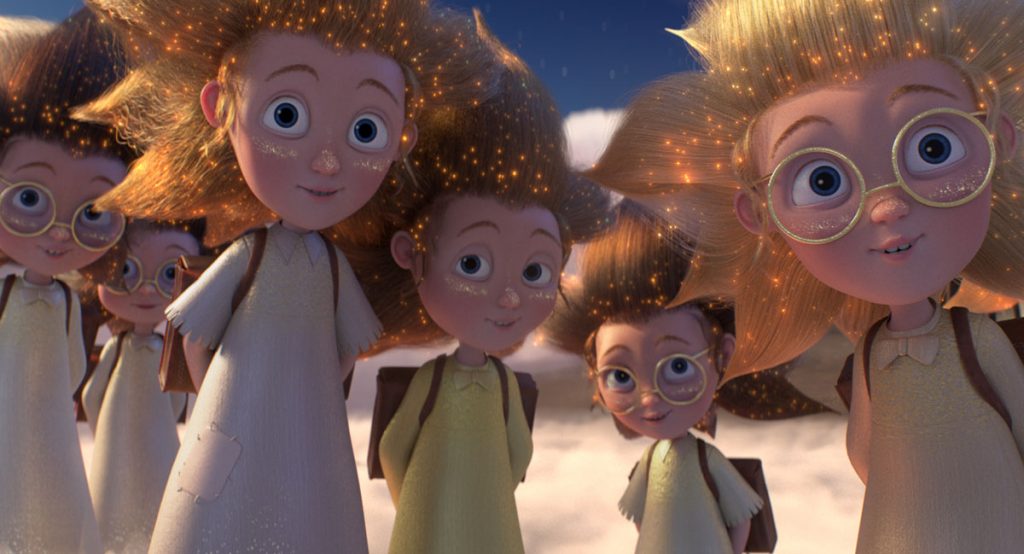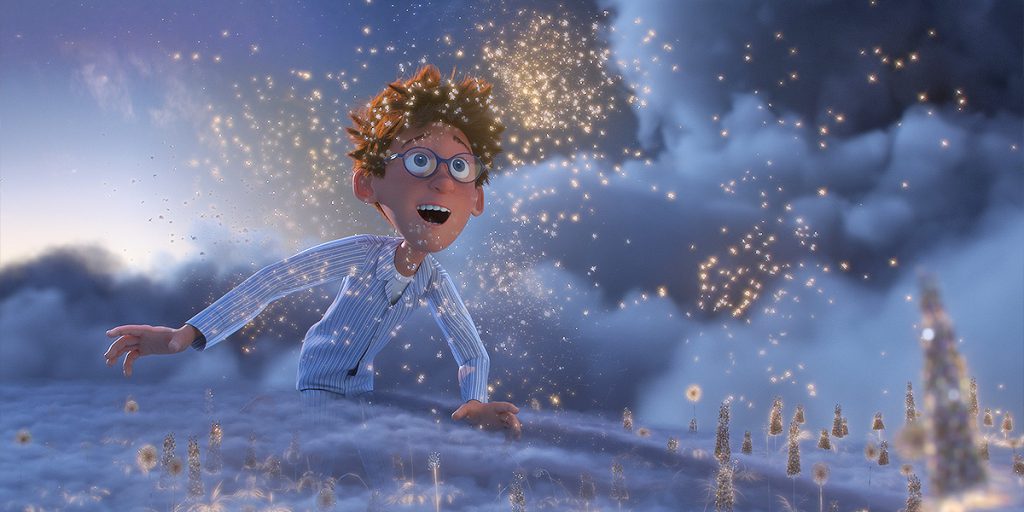Moonbound is a cosmic adventure rooted in German folklore that sparkles with colour, sound, and galactic imagination, but lacks in narrative structure.
In every culture and society, through the past centuries, storytelling has sparked our imaginations and made us bond with the people close to us. Whether snuggly seated around a campfire or comfortable under your duvet in your bed, the act of listening to a grand story of love, hope, adventure, and trust, surely brought on the wildest dreams at night and during the day. When I was young, nothing was better than listening to the voice of a loved one recanting tales, whether inspired by themselves or one of my favourite books read out loud. Think of the adventures of James Matthew Barrie’s “Peter Pan” works, or Helen Beatrix Potter’s “The Tale of Peter Rabbit”, or maybe even C. S. Lewis’s “Narnia”.
Gerdt von Bassewitz conjured up the story of Little Peter and his journey to the moon back in 1915. It has subsequently been published as a children’s book, adapted to an animated film and series in the 90s, and now under the guidance of director Ali Samadi Ahadi (Lost Children, 45 Minutes to Ramallah) it comes to life yet again in the colourful and musical Moonbound. In a magical adventure through strange galactic worlds and with weather makers as helpers, Peter (Aleks Le, Demon Slayer, Astral Chain) goes on a quest to rescue his sister Anne (Lillian Gartner, Wir Sind Kaiser*in – Neues Aus Der Hofkanzlei) from the evil Moon Man (Drew Sarich, Die Helene Fischer Show). He is helped by Mr. Zoomzeman (Howard Nightingall, Power of the Incomprehensible, El Factor Pilgrim), who has a quest of his own, and the ironically narcoleptic Sandman (Raphael von Bargen, Woman in Gold, Thank You for Bombing).
Von Bassewitz’s original fairy-tale, “Peterchens Mondfahrt,” is an elaborate tale involving as many weather-based characters as perhaps J. R. R. Tolkien’s “Lord of the Rings”. Its popularity and status as a children’s classic have turned the book into one of the best-loved German children’s books, and it is still a bestseller in Germany to this day. Ali Samadi Ahadi’s adaptation to the modern big screen has the potential of being a big hit, as the visuals and sound feel like the perfect balance between a children’s imagination and an adult’s appreciation for form. However, the plot delves from one situation to another without there being a clear narrative structure. As a result, most of the jokes that are intended to appeal to adults fall flat within a convoluted narrative.

Both the set design (Sven Höffer, The Congress) and the loop development (Fabian Berke) are spot on, and give Moonbound a certain allure of the old days of filmic fairytales. There is a certain Neverending Story and Labyrinth feel to the aesthetics of the film, that made me strangely nostalgic for my own youth again. The creation of this atmospheric playfield is massively aided by Thomas Pötz’s (Nevrland, Cops) sound design, who manages to bring otherworldly planets and folkloric figures to life in beautifully serene soundscapes. The use of choirs and orchestras to sonically supplement the narrative works well to signify that the narrative is a fairy tale that is well over a century old, and naturally has elements of that world.
Though Moonbound takes over a lot of tropes from classic animation films, as well as its 1990 predecessor Peter in Magicland, the film also tries to incorporate a multiculturally diverse cast of weather makers, among which an empowering ‘lightning witch’ who in the end saves the day. It is only a shame that multicultural characters are not elevated from their respective stereotypes and are at times downright problematic, in this children’s universe there is clearly no room for respectful diversity. On top of that, many of the scenes that were part of the original folkloric tale, and that make it a folkloric tale in the first place, are replaced in Moonbound with more humorous scenes, involving a race that takes them through the Parmesan Desert among others and is presented by a man who seems to come straight from the Hunger Games universe. However hilarious and thrilling they might be for children to watch, they are quite meaningless to the plot and often feel like the mini games played in Super Mario Party: fun, but a major tangent.
When the film comes to its big battle between Peter and the Moon Man, so many things happen at once that could have been foreshadowed throughout the film to prevent the finale from becoming chaotic. The lightning-fast character development of the heroine who saves the day is saved till the last five minutes, whereas Peter, our main character, seems to go through no change of character at all. I thoroughly enjoyed how the film imagined the cosmic life, visually and sonically, even if the characters are a bit clichéd. It still is a nice film to watch if you happen to be babysitting your niece/nephew/neighbour anyways, and need to while away the time for an hour and a half. Moonbound shows that imagination knows no bounds, and that fairy tales and faith release the child in any one of us.
READ THE BOOK THAT INSPIRED “MOONBOUND”:
Moonbound is now available to watch on digital and on demand.

